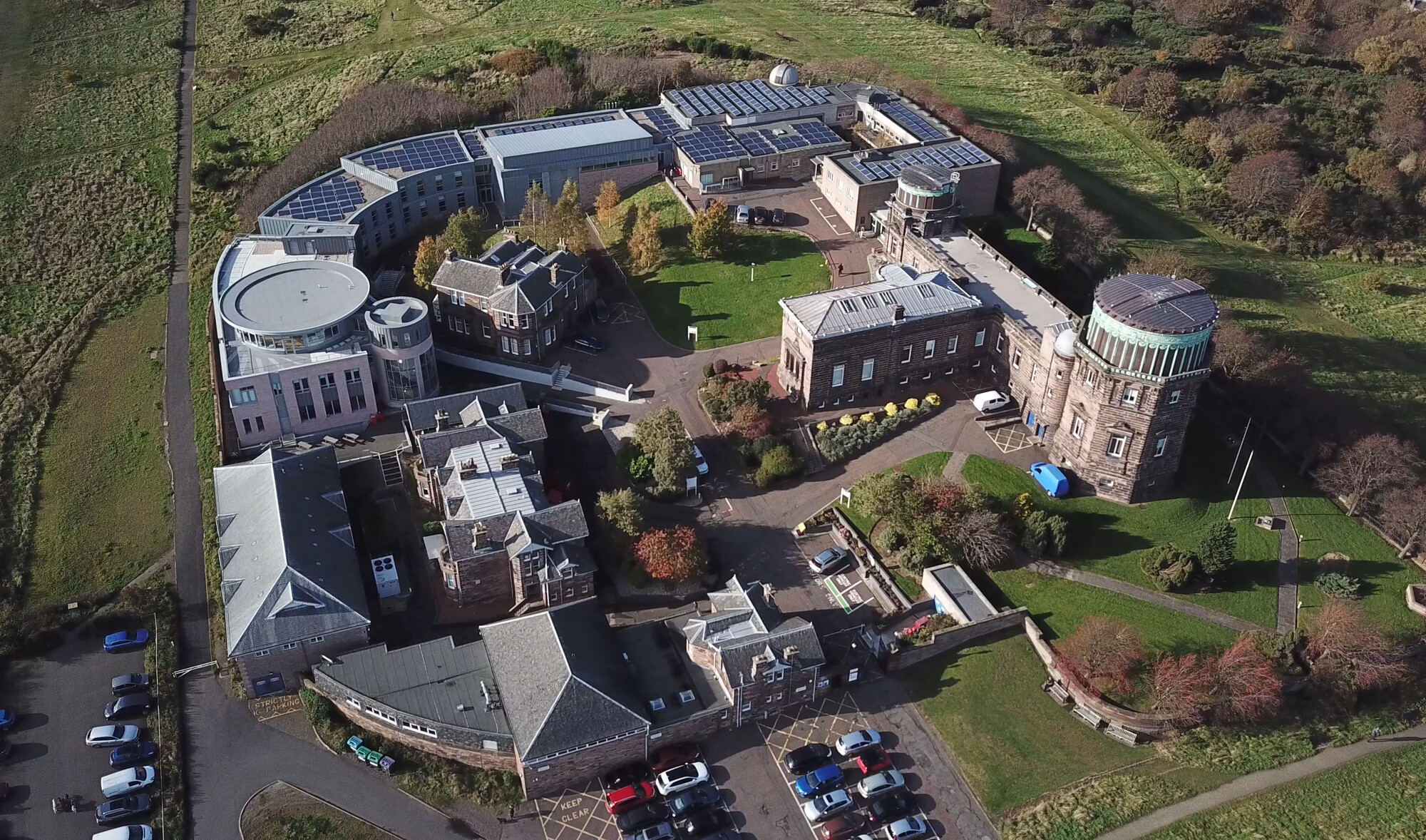The site is shared with the University of Edinburgh's Institute for Astronomy, creating a vibrant mix of engineers, project managers, astronomers and students.
 UK ATC projects are typically multi-disciplinary and international in nature, working in collaboration with leading astronomical institutes across the world; including the European Southern Observatory (ESO), the Atacama Large Millimeter Array (ALMA), the Square Kilometre Array Observatory (SKAO), European Space Agency (ESA) and NASA. Managing UK and international collaborations with universities, research centres, institutes and industry. Working together to answer fundamental questions about the origins and evolution of the Universe.
UK ATC projects are typically multi-disciplinary and international in nature, working in collaboration with leading astronomical institutes across the world; including the European Southern Observatory (ESO), the Atacama Large Millimeter Array (ALMA), the Square Kilometre Array Observatory (SKAO), European Space Agency (ESA) and NASA. Managing UK and international collaborations with universities, research centres, institutes and industry. Working together to answer fundamental questions about the origins and evolution of the Universe.
Current projects include software for the SKAO, the world's largest radio telescope based in South Africa and Australia; instrumentation for both for the Very Large Telescope and the Extremely Large Telescope in Chile, while UK ATC Director Professor Gillian Wright CBE is the European lead on MIRI, one of four scientific instruments on the James Webb Space Telescope, which launched on Christmas Day 2021.
The UK ATC leads STFC's National Laboratories public engagement team, who provide public engagement programmes across all STFC sites. Locally this team delivers the Royal Observatory Edinburgh Visitor Centre programmes that include Astronomy Talks, Meteorite loans to schools across Scotland and Community Partnerships across Edinburgh and the Lothians. National campaigns and partnerships, such as the work around the James Webb Space Telescope, further engage schools and communities across the UK with STFC's inspirational science and technology.
The UK ATC is also home to the Higgs Centre for Innovation, a partnership run by STFC in collaboration with the University of Edinburgh, to support start-ups and SMEs working in the space and big data sectors. Encouraging collaboration between researchers, engineers and post-graduate students while providing business incubation facilities and laboratories suitable for commercial use.
UK ATC technology delivers a range of practical benefits beyond the field of astronomy. For example, their expertise in optics and imaging systems contributes to biomedical imaging and instruments used for environmental monitoring.
